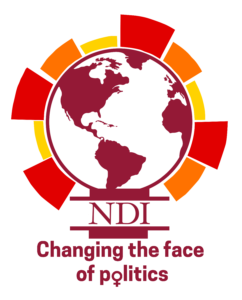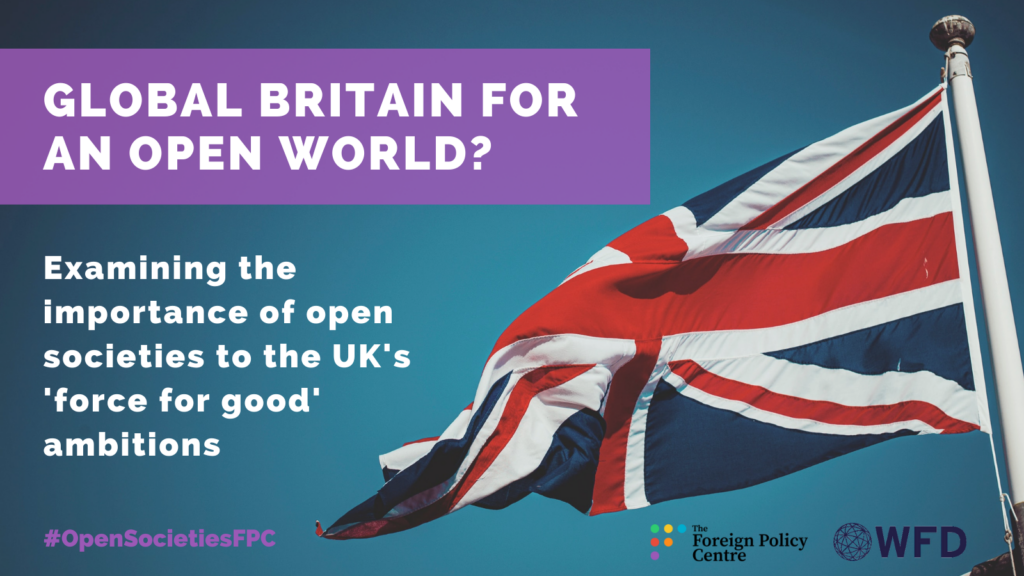Democracy is not a dying cause; in fact, it is poised for a comeback, @NDI chair @madeleine Albright writes for @ForeignAffairs… https://t.co/x1HyjRg8Z5 via @ForeignAffairs
— Democracy Digest (@demdigest) October 19, 2021
The coming democratic resurgence is less likely to be sudden than gradual and more likely to be spotty than universal, says Madeleine K. Albright. A pendulum, after changing direction, takes a while to gain velocity.
The world’s two most prominent authoritarian states, China and Russia, have squandered their best chance to offer an appealing alternative to liberal democracy, she writes for Foreign Affairs:
Observers should note that democracy’s decline coincided with the rise of international terrorism, the 2008 global financial meltdown, the Syrian civil war, a global refugee crisis, and a worldwide public health catastrophe. These events stoked a host of popular frustrations and fears, with most blame settling on elected leaders. The next 20 years can hardly be less conducive to liberty’s growth than the last.
 Today’s leading autocracies – the PRC and Russia – have adopted different strategies for altering the international order, notes James Rogers, co-founder of the Council on Geostrategy. Both see the prevailing international order as antithetical to their interests and seek to dismantle it piece by piece. However, the CCP has developed a ‘counter-systemic’ strategy, whereas the Kremlin prefers an ‘anti-systemic’ drive.[5] The former involves disaggregating the prevailing order and replacing it with a new one, while the latter involves simply dismantling the prevailing order.
Today’s leading autocracies – the PRC and Russia – have adopted different strategies for altering the international order, notes James Rogers, co-founder of the Council on Geostrategy. Both see the prevailing international order as antithetical to their interests and seek to dismantle it piece by piece. However, the CCP has developed a ‘counter-systemic’ strategy, whereas the Kremlin prefers an ‘anti-systemic’ drive.[5] The former involves disaggregating the prevailing order and replacing it with a new one, while the latter involves simply dismantling the prevailing order.
Thus, a counter-systemic strategy can be likened to a true ‘great power’ strategy, while an anti-systemic drive is a poor man’s approach, he writes in a contribution to a report from the London-based Foreign Policy Centre and Westminster Foundation for Democracy (WFD) entitled: Global Britain for an open world?

Former Secretary of State Madeleine Albright. Credit: NDI
Democracy is not a dying cause; in fact, it is poised for a comeback, Albright asserts:
Today, more talented women and men are striving in more places on behalf of democratic principles than ever before. The National Democratic Institute, a nongovernmental U.S. organization that supports democratic institutions overseas, is working with around 28,000 local partners in more than 70 countries on five continents. Despite democracy’s struggles, popular participation in shaping public agendas is up, not down.
Irrespective of the type of revisionism – whether anti- or counter-systemic – liberal democracies need to enhance their resilience and ability to compete with authoritarian power, Rogers contends:
- They need to promote critical thinking in schools and universities so that the next generation of citizens is able to better detect propaganda and disinformation spread on social media from abroad.
- Liberal democracies would also do well to encourage civic and national engagement, even patriotism, to generate the ‘we-feelings’ on which democracy depends.
- They should also adopt stiffer sanctions – such as new treason laws – to deter collusion between their citizens and authoritarian regimes. A liberal democracy that does not believe in itself or its right to exist, or which fails to protect itself, will not last for very long when confronted by a ruthless autocracy.
 For this strategy to attract followers, the United States must show the way by integrating its commitment to democracy into all aspects of its foreign policy, adds Albright:
For this strategy to attract followers, the United States must show the way by integrating its commitment to democracy into all aspects of its foreign policy, adds Albright:
- In national security decision-making, when other interests appear to conflict, the benefit of the doubt should be given whenever possible to the backers of political openness and the rule of law;
- In bilateral diplomacy, considerations of human rights should be at the top of the agenda, instead of an afterthought;
- The most courageous democratic leaders, whether of countries large or small, should be acknowledged, supported, and invited to the White House;
- Through the UN and regional bodies, the United States should strive to hold countries accountable to the principles proclaimed in multilateral declarations and charters.
Taking advantage of its strategic position at the nexus of robust European, Atlantic and Commonwealth networks – the UK is well-positioned to act as the catalyst for a new constellation of democracies – complementing and consolidating current alliances such as NATO and the G-7, a recent analysis suggested. Embedded in a firm commitment to core democratic values, such initiatives would serve as the institutional embodiment of liberal democratic norms, while constituting a potent countervailing power to autocratic states and malign non-state actors alike.
At the same time, the leading democracies ought to double down on upholding an open international order, Rogers writes for the FPC. Besides rebuilding their military strength to deter autocratic revisionism, the leading democracies ought to push forward with organizing themselves in new geopolitical groupings and coalitions, particularly to push back against authoritarian powers. RTWT








